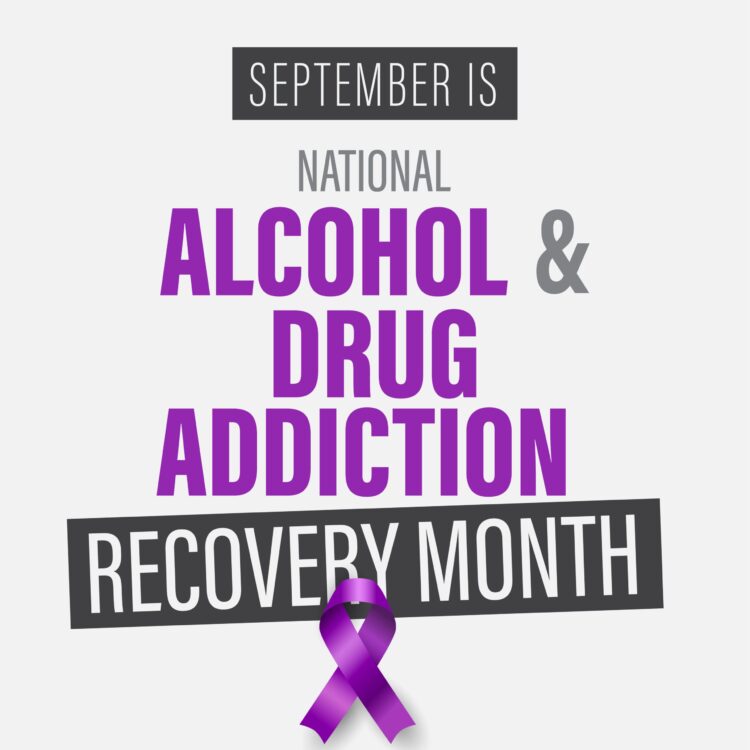For the past 34 years, SAMHSA (Substance Abuse and Mental Health Services Administration) has sponsored National Recovery Month, or Recovery Month, during September. National Recovery Month helps educate Americans that people with substance use disorders can live healthy, happy, and rewarding lives with the assistance of mental health services and treatment. It honors and celebrates the gains made by those in recovery, helps people struggling with active addiction, and brings awareness to the community.
A Brief History of National Recovery Month
In 1989, National Recovery Month was called Treatment Works! Month. It was created to honor the work of addiction professionals. In 1998, the name was changed to National Alcohol and Drug Addiction Recovery Month to reflect the focus on recovery, not just treatment. The name was changed again in 2011 to National Recovery Month to better reflect the diversity of recovery experiences.
In the past, National Recovery Month has adopted a theme each year. However, the Association of Addiction Professionals announced that beginning this year, 2023, and moving forward, the theme of Recovery Month will remain the same: “Every Person. Every Family. Every Community.” This theme means anyone can recover from drug or alcohol addiction regardless of their circumstances or background. It also emphasizes the essential role community support has in addiction recovery.
This year National Recovery Month will support and promote:
- The growth of a proud and strong recovery community
- Evidence-based recovery practices and treatments
- Community members and service providers across the United States and their dedication to making recovery possible
The Importance of National Recovery Month
In the United States, the lives of millions of people have changed through recovery. Usually, the successes go unnoticed by most people. National Recovery Month provides the opportunity for everyone to celebrate their accomplishments.
Throughout the month, recovery, treatment, and prevention programs throughout the United States share stories to educate the general public about the chronic disease of addiction and addiction recovery. They celebrate health improvements made by those successfully managing their addiction, and they explain how recovery works, who succeeds, and why.
Below are six benefits of National Recovery Month that show its importance.
- National Recovery Month increases awareness about substance use disorders and mental health conditions. Doing this helps to reduce stigma and discrimination. It makes it more likely that people will seek help if they struggle with addiction.
- It celebrates the gains made by those in recovery. Doing this can provide hope and inspiration to others in recovery. It can help break down the isolation that many people in recovery feel.
- It promotes the availability of treatment and recovery services. Doing this can help people find the help they need.
- It encourages people to seek help if they are struggling. Doing this can save lives and improve the quality of life for many people.
- It reinforces four essential positive messages: behavioral health is critical to a person’s overall health, addiction treatment is effective, prevention is necessary and works, and people with substance use disorders can and do recover.
- Recovery Month is an important opportunity to educate the public about substance use disorder, addiction treatment, and recovery.
How Can You Participate in National Recovery Month?
National Recovery Month provides an opportunity to educate the public about substance use disorder and addiction recovery and celebrate the power of recovery. There are many ways to celebrate National Recovery Month.
Here are seven ways you can participate in National Recovery Month:
- If you are in recovery, share your story with others.
- Host or attend an event such as a sober party, sober festival, or overdose awareness candlelight vigil.
- Attend a recovery event in your community, such as a memorial walk to raise money for addiction and recovery awareness or recovery resources.
- Attend an online or in-person seminar held by SAMHSA.
- Share links to recovery resources, addiction recovery stories, and positive messages about addiction recovery, treatment, and prevention on social media.
- Donate time or money to a recovery organization.
- Contact local elected officials and ask them to support addiction recovery policies.
Help is Available
Are you or someone you care about struggling with an alcohol or drug addiction? If you answered yes, please know you are not alone. Canyon Vista Recovery Center in Mesa, Arizona, can help you regain control of your life. Our skilled professionals will use a combination of evidence-based addiction treatments, holistic therapies, and psychiatric care to help you travel the road to recovery.










